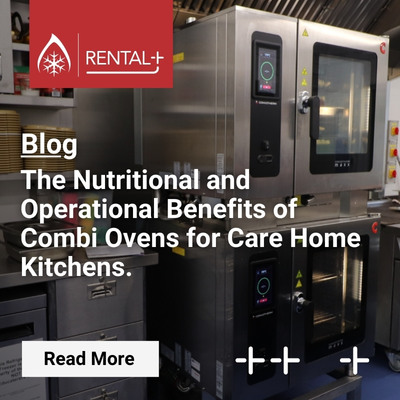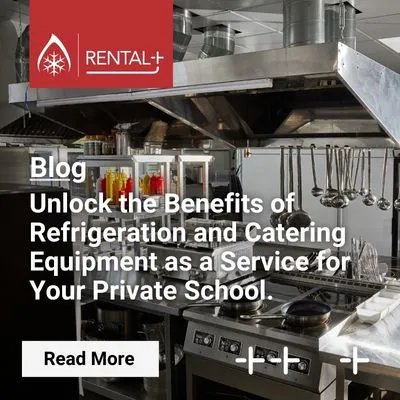Induction: the Pros and cons for Professional Caterers
By Shaune Hall, Falcon Food Service Development Chef
Summary
Many people are confused and concerned about using Induction – and I was just the same. But with a little knowledge I truly believe that induction is a fantastic technology that is perfect for most kitchens as it is cheaper to run, improves the kitchen environment by reducing heat and is more responsive and controllable than even gas hobs!
Pros
Efficient operation
Produces less heat than traditional cooking methods
Easy to clean
Safer
Good to Know
You need to use ‘ferrous’ pans for the technology to work – aluminium won’t work!
Convert
It’s time to come clean: for a long time I HATED induction cooking systems as a chef. I loved solid tops: they were easy to use and to understand. The bullet in the centre was where the heat was, and was the hottest part of the machine, and the temperature gets cooler as you move outwards. Simple.
The induction units I was given to use were old and early versions of induction technology and, frankly, they didn’t do the job very well: they had few power options, so they were either doing very little or burning your food!
But then, when I started at Falcon in 2017, I had my views turned completely on their head. Together with our research and development team, I helped develop our induction oven range for the F900 series.
I now work with this machine virtually every day, and it’s shown me how good induction can be.
Here’s a few pointers that will help you understand the differences between induction and traditional heating methods and the key considerations you need to make before deciding if induction is for you.
1/ It’s more expensive – and less expensive
Induction is created by electromagnetism – a magnetic coil in the hob creates a fluctuating magnetic field that excites the molecules in the pan you are cooking in. This means the hob only works or draws power if a pan is on it. This makes induction the most efficient cooking system by some distance – being 35% more efficient than electric and 40% more efficient than gas.
What induction gives you is the responsiveness of gas with greater efficiency. So although the machines themselves are more expensive to buy, (they are coming down in price all the time, by the way) they are cheaper to run. Whether they are actually cheap enough to make the money back over the lifetime of the product is debatable, but cost savings are actually not the reason most people buy induction.
2/ They improve the kitchen environment
Every chef will tell you horror stories about working in intensely hot kitchens and this, for me, is one of the big advantages of induction: they bring the temperature down.
A solid top will take crucial minutes to heat up, and so chefs turn their solid top on at the start of service and leave them on for the next three to ten hours. For all that time the air above the hob is being heated, and the whole kitchen heats up.
All new kitchens are becoming more condensed – space is money. People want to maximise customer space over chef space. So you can see tiny kitchens all over. If they have a solid top and fryers in there, they will heat up that space incredibly quickly.
This results in a sauna like atmosphere. Chefs hate it, they don’t want to work in it and they will look for somewhere else to work if the temperature isn’t brought down!
An induction hob doesn’t do that, and to replace a conventional solid top with an induction machine reduces the heat in the kitchen and can help to make the environment much more pleasant. And it’s important to remember that good chefs want to work in pleasant environments! They work longer and better in a cooler kitchen.
3/ The kitchen is safer
Every chef carries a towel on their hip – it’s not to clean things and it’s not to wipe their hands -it’s to pick up pots and pans from the hob, because they will be so hot. If you cook over flame, using a rag to grab the handles also adds the additional risk of the rag catching alight.
With induction you don’t have that problem – the handles are cool and so is the cooking surface.
Because heat is generated in the pan itself, not transferred to it by the hob surface, as soon as the pan is off the hob, no more heat is generated.
This makes the kitchen cooler, as we’ve mentioned above, but also means the surface is not so hot as to be a danger to you, your clothes or other items around the kitchen.
4/ You have more control than any other cooking
Early induction hobs had very little range in the power they offered: you had nothing, weak and too strong!
But the last few years have seen some massive improvements in the technology and we now have 10 different levels of power on our Falcon models, which allow you a huge range of control. The lowest is enough to almost forget about the food for as long as you need to, whereas the highest is incredibly hot and great for bringing pots to the boil incredibly quickly.
That’s another great thing about induction: you get power/heat incredibly quickly – up to twice as quick as a gas burner.
5/ Cleaning is a doddle – but be careful
To clean an induction hob all you need is some warm soapy water and some paper towels or microfibre cloth – there’s no need to use abrasive cleaners. In fact, that’s an important point about induction, don’t use abrasive cleaning products on them or you could remove the markings which show where the heating zones are for your pans!
6/ You can’t use aluminium pans
Induction uses magnetism to heat the pans you use, so it naturally follows that the pans you use need to be magnetic. The term for this is ‘ferrous’ but remember to avoid aluminium pans and you won’t go far wrong.
Conclusion
Induction is becoming more and more popular as chefs become more comfortable with the technology and the costs come down.
I’m a former hater who has been turned into a chef who loves to use induction each and every day, so I’m living proof that induction can convince anyone!
There are lots of advantages to having induction: quicker heating, more gradated control than any other cooking method, cooler and safer kitchens and hobs that are massively easier to clean.
When you are thinking about buying induction you have to weigh these up against the extra cost of induction and the fact you may need to buy new pans to use the machines.
I think they’re amazing, but what do you think?
Learn More
If you are interested in the range of Falcon Induction Hobs, have a look at our website. We offer a variety of flexible procurement methods meaning that whatever your situation, and whether you want to rent or buy, we will have something that will suit you. Click on the link below to see our complete range of Falcon induction products.
Born in Cape Town, South Africa, Shaune Hall has been working in the catering and hospitality industry for over 27 years, covering various sectors such as hotels, country houses, restaurants, cruise ship, private dining, outside catering, further education / lecturing and a nature reserve.
The Power of Branded Commercial Refrigeration: Boosting Impulse Sales and Brand Visibility for F&B Brands
The Power of Branded Commercial Refrigeration: Boosting Impulse Sales and Brand Visibility for F&B Brands In the highly competitive food and beverage (F&B) industry, capturing consumer attention and driving impulse purchases
The Benefits of Energy Efficient Commercial Refrigeration in Convenience Stores
The Benefits of Renting Energy Efficient Commercial Refrigeration in Convenience Stores As the retail landscape evolves, convenience stores are under increasing pressure to optimise their operational costs while maintaining customer satisfaction.
The Energy Shift: Transforming Commercial Refrigeration in Hospitality Operations
The Energy Shift: Transforming Commercial Refrigeration in Hospitality Operations In the fast-paced world of hospitality, operational efficiency and sustainability are crucial for long-term success. Back-of-house operations – specifically commercial refrigeration units – quietly
Rental vs Warranty: Why Catering Equipment Rental Equipment Outperforms Warranty Coverage
Rental vs Warranty: Why Catering Equipment Rental Outperforms Warranty Coverage When it comes to equipping your business with the best in commercial refrigeration and catering equipment, the decision between purchasing with
The Nutritional and Operational Benefits of Combi Ovens for Care Home Kitchens
The Nutritional and Operational Benefits of Combi Ovens for Care Home Kitchens In care home kitchens, the challenge of consistently providing nutritionally balanced, appealing, and efficiently prepared meals is considerable. Combi
Unlock the Benefits of Refrigeration and Catering Equipment as a Service for Your Private School
Unlock the Benefits of Refrigeration and Catering Equipment as a Service for Your Private School Kitchen As a Bursar, Estates Manager, Catering Manager, or Finance Director, you understand the importance of providing the










